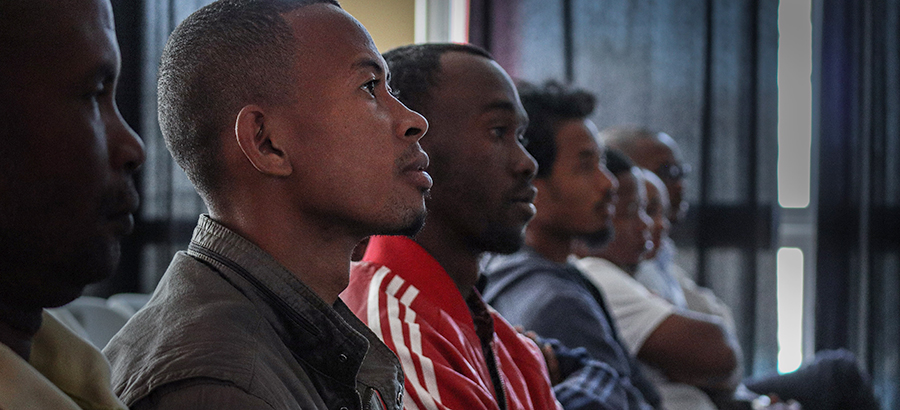RuralInvest: empowering rural entrepreneurs

The Food and Agriculture Organization of the United Nations (FAO) Investment Centre is launching a newly updated software and training package to empower rural entrepreneurs, agricultural extension workers and investors.
RuralInvest is a free step-by-step toolkit, now offering new, user-friendly and multi-language software combined with hands-on support, to produce sustainable and bankable agribusiness plans.
RuralInvest brings together small and medium-sized enterprises seeking capital to expand, with national and international financial institutions looking to securely invest in viable agriculture businesses.
“Our goal is to create opportunities for small-scale agriculture entrepreneurs, where they are empowered to thrive,” said John Preissing, Deputy Director, FAO Investment Centre. “Solid, sustainable business plans can set rural entrepreneurs on the right path to access finance, build their businesses and improve the quality of life for their families.”

Fostering access to finance
The new RuralInvest builds on almost two decades of experience in fostering access to finance for farming families and small-scale rural entrepreneurs by FAO Investment Centre.
RuralInvest has already made headway in growing more than 1000 agribusinesses in 15 countries in the last five years – fish farms, forestry, polyculture, rural tourism and more – empowering more than 500 agriculture workers with business-generation skills, and catalysing approximately USD 34 million in investment in 2022 alone, boosting rural businesses worldwide.
The toolkit features new software, an e-learning course, tailored face-to-face training and practical user manuals.
All types of small and medium-sized agribusinesses – producers, breeders, processors or service providers – are set to benefit.

Lack of capacity and capital
There are more than 608 million family farms globally occupying around 70 to 80 percent of the world's farmland and producing around 80 percent of the world's food – often with little machinery, few resources and low capability to invest or expand.
These farming families often lack access to capital which would enable them to diversify their livelihoods, grow their business, or cover gaps in working capital requirements between production and harvest.
First and foremost, farmers and rural entrepreneurs need to be sure that their investment ideas are viable, as they will be the ones taking on debt.
Even with workable investment ideas, farmers and rural entrepreneurs can find it difficult to convince financial institutions to invest without clear and solid business plans. Banks often see agriculture as a risky investment, and may have trouble understanding the business model and its potential profitability.
“I spend time with farmers and we work through investment ideas together,” said Dr. Marietou Sissao, a livestock specialist from Tenkodogo University Centre, Burkina Faso, who has worked extensively to help grow livestock and dairy businesses with farmers in Yagma, near the capital city Ouagadougou. “RuralInvest means I can support entrepreneurs, technicians and financial partners to speak the same language. The RuralInvest method informs investment decisions and improves access to finance.”

Realising the vision with new RuralInvest software
The RuralInvest toolkit – developed in close collaboration with FAO Digitalization and Informatics Division – is valuable for development partners looking to integrate business proposals into projects. RuralInvest also partners with national institutions to train training professionals to support rural entrepreneurs.
Data and details are inputted by RuralInvest trained field technicians, extension agents, financial specialists and other professionals – in partnership with farmers – and this is translated into visually appealing, high-quality business plans.
Capital budgeting and performance indicators are calculated automatically through the software, making it easy to evaluate and compare business plans for financiers with a view to invest.
“The toolkit is participatory, interactive and bottom-up, designed to be used easily by a broad audience,” said Eduardo Machado, FAO Information Technology Officer. “RuralInvest users can rely on ongoing technical support and a comprehensive training program from the FAO team.”
Moving forward, FAO aims to help users to share their experiences with RuralInvest. The cohort of more than 40 national trainers will be expanded, and links with training institutions secured to ensure RuralInvest is set for the long-term. National training events will ramp up, and new partnerships will be forged to support more rural entrepreneurs worldwide.
“RuralInvest supports users from concept, design and data collection, through to financing,” said Chloe Cangiano, RuralInvest technical lead, FAO. “We are developing a worldwide network of rural communities, entrepreneurs, government field technicians, project staff and local financing institutions, building strong and sustainable agribusinesses.”

